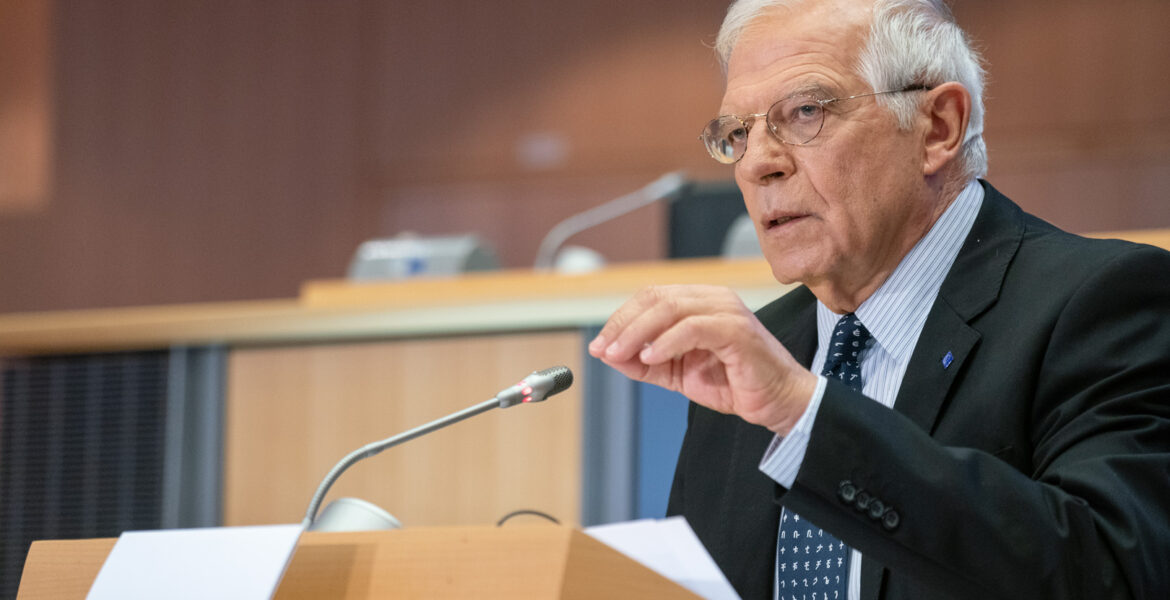The recent teleconference of European Defense Ministers ended in destruction as the European Union’s chief diplomat, Josep Borrell, was sitting in a safe room in Brussels in front of a screen connected with the 27 EU defense ministers.
Suddenly, an unknown person logged in. Borrell wanted to know who he was:
“Someone has invaded the system – who are you?”
No reply.
The above is mentioned in a report by public television station ARD-tagesschau.de in Brussels.
Title: “Leading EU diplomat – A year as if chased”.
Subtitle: “Leading EU diplomat Borrell ran from one controversy to another during his first year in office. He has not been able to fulfill much of the Commission’s promise to act in a geopolitical manner – and that is not his only responsibility.”
It states, inter alia:
Borrell, the EU High Representative for Foreign Affairs and Security Policy, addressed the discussion.
“In general,” he said, “I think you need to invest more in security!”
Laughter was heard from the 27 capitals that were connected to the video conference.
Suddenly the stranger answers with a “hello”.
“Do you know,” replies the top EU diplomat, “that you entered into a secret meeting?”
“Yes,” the stranger replied, apologizing, saying he was a Dutch journalist.
The man had hacked the secret video conference, in order to draw attention to a security gap. Rarely has the gap between desire and reality in Europe’s foreign and security policy become so clear.
The new EU Commission will become a geopolitical commission, Ursula von der Leyen announced when she took office a year ago. And chief diplomat Borrell said: Europe should learn the language of power.
Borrell is trying to apply this to Turkey, when President Recep Tayyip Erdoğan, in the context of the dispute with Greece over natural gas, first sent a drilling ship and then a warship off the Greek islands.
“We are absolutely clear that if there is no progress with Turkey, there must be consequences,” Borrell said. “I can say with certainty that relations with Turkey are at a turning point.”
Strong words that are not followed by actions.
French President Emmanuel Macron wants an active reaction to Ankara’s stance and is discussing the possibility of imposing sanctions. However, German Chancellor Angela Merkel is putting the brakes on, among other things, because of her concern about the Refugee Agreement.
Political scientist Annegret Bendiek from the German think tank Foundation for Science and Politics says it must be borne in mind that “the political wind is currently blowing very strongly in the direction of Foreign and Security Policy. A policy that is very strongly defined by the capitals and less by Brussels.”
Borrell is unable to represent a common foreign and security policy, to the extent that governments are reluctant to hand over power to Brussels – and he was deliberately chosen for this:
“He is not a prominent figure in Foreign and Political Policy. European security, which has already proven its ability to manage other conflicts, as it has done in the past with Xavier Solana.”
The conflict with Turkey, the months-long tug-of-war over sanctions against Belarus, the search for a common ground in the civil war in Libya, where EU countries have different interests – Borrell looks like a man running from one acute conflict to the next.
The Commission has simply set the bar very high, said Greens MEP Hannah Neumann.
“So when someone makes such ambitious announcements and after a year – and I’m afraid that even after three, four, five years – they are not able to make them come true, it causes a lot of frustration,” he said.
“Great frustration inside the EU, but of course great frustration in this world out there, because these are promises that are impossible to fulfill,” he added.

